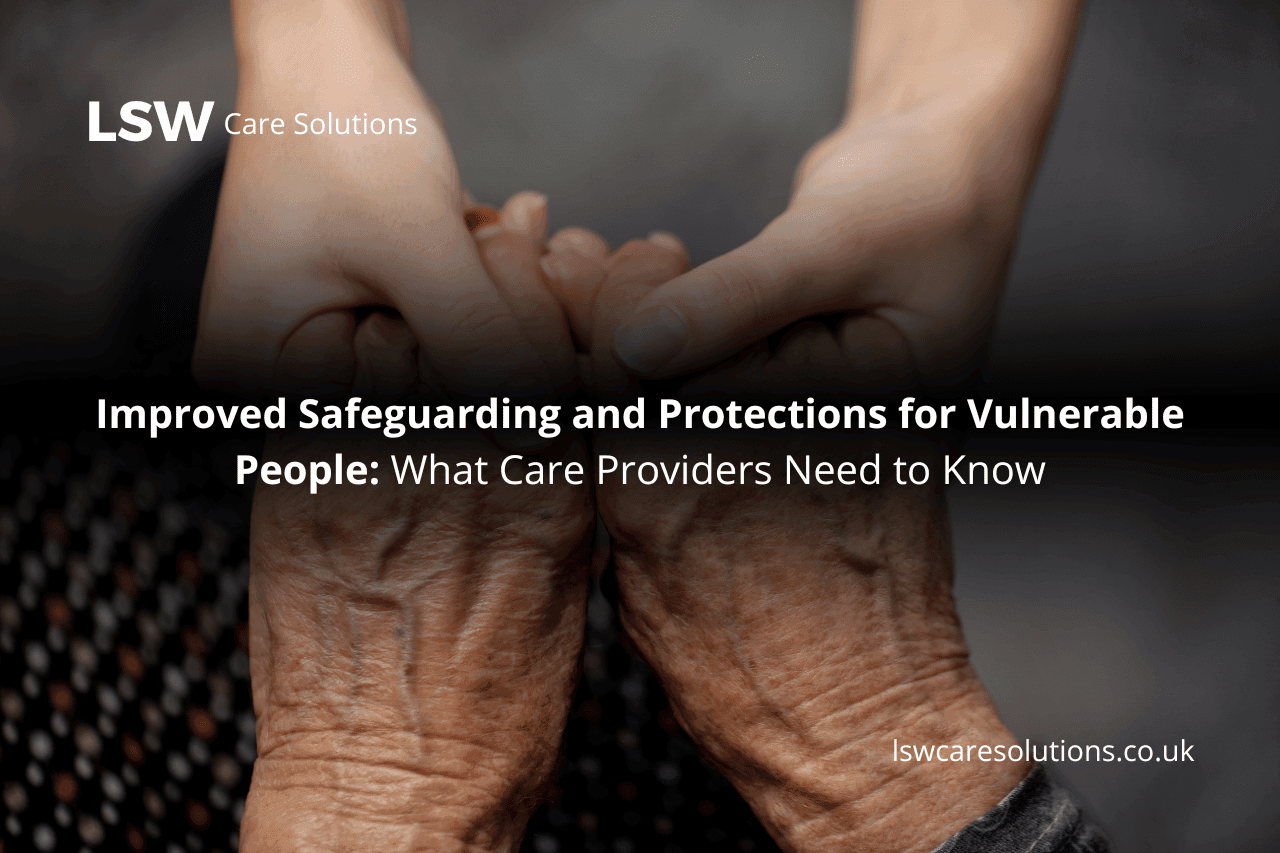
The Government has announced plans to overhaul how vulnerable people are protected when they lack the mental capacity to make decisions about their care. A new consultation in 2026 will focus on introducing Liberty Protection Safeguards (LPS), which aim to replace the current Deprivation of Liberty Safeguards (DoLS) system.
For care business owners and managers, this is an important development. The current DoLS framework is widely criticised for being overly complex, slow, and distressing for families. The proposed changes could significantly alter how care services manage authorisations and safeguarding for individuals under restrictive care arrangements.
What’s Changing?
The new Liberty Protection Safeguards will be designed to:
- Reduce bureaucracy by allowing some assessments to be reused or last longer than a year, removing repetitive processes.
- Provide better protection for people lacking capacity, ensuring their rights are safeguarded while allowing them to receive appropriate care.
- Ease distress for families by avoiding unnecessary reassessments for those with unchanging conditions.
- Streamline the system to address the backlog of more than 120,000 unprocessed DoLS applications.
- Focus resources on those most at risk or in need of support.
This overhaul follows long-standing calls for change from organisations including CQC, Mencap, and Mind, all of whom have highlighted the shortcomings of the current system.
Why Change is Needed
The DoLS process was originally created to protect vulnerable adults, but in practice it has become overwhelmed and difficult to manage.
Under current rules, even individuals in advanced dementia who cannot communicate or recognise their surroundings must undergo annual assessments involving multiple professionals. This can cause distress to families and creates unnecessary workload for care providers and local authorities.
Minister of State for Care Stephen Kinnock acknowledged these issues, describing the current system as “broken.” He emphasised the government’s commitment to ensuring vulnerable people’s rights are properly protected while cutting down on unnecessary bureaucracy.
Read the Gov.uk Press Release here.
The Role of the Supreme Court
Part of this reform also relates to the ongoing legal discussion around what constitutes a “deprivation of liberty.”
A 2014 ruling, known as Cheshire West, created a broad definition — sometimes referred to as the “acid test.” This dramatically increased the number of cases requiring DoLS authorisation, contributing to the backlog that exists today.
A recent challenge from Northern Ireland has brought this issue back before the Supreme Court, with the UK Government granted permission to intervene. The outcome could have UK-wide implications for how deprivation of liberty is defined and managed.
Consultation Timeline
- The Government plans to launch a public consultation in 2026, jointly led by the Department of Health and Social Care and the Ministry of Justice.
- The consultation will seek input from families, carers, social workers, nurses, psychologists, occupational therapists, and care providers.
- The responses will shape a new Mental Capacity Act (2005) Code of Practice, to be laid before Parliament after consultation.
- The revised code will reflect modern case law, organisational structures, and updated best practice since the last version was issued in 2007.
What This Means for Care Providers
For care business owners and managers, this announcement is more than just policy news — it signals a major shift in how you’ll manage authorisations for restrictive care arrangements.
Here’s what you should start considering now:
- Keep up to date with the consultation and its outcomes — the LPS will affect how you seek authorisation for residents who lack capacity.
- Review your current DoLS processes, ensuring applications and renewals are managed efficiently and documentation is in order.
- Train your teams on the principles of capacity assessment and least restrictive practice to prepare for new standards.
- Engage with families early — clear communication about why restrictions are in place reduces confusion and complaints.
- Audit your records — ensure all existing DoLS authorisations are up to date and that any expiring authorisations are identified in advance.
These steps will not only strengthen compliance now but also make it easier to transition when the new Liberty Protection Safeguards are introduced.
Preparing for the Liberty Protection Safeguards
Although the consultation won’t open until 2026, you can start getting ready by:
- Reviewing your current care plans and ensuring they reflect each person’s needs and capacity.
- Ensuring your Mental Capacity Act training is current and includes DoLS updates.
- Working closely with your local authority and safeguarding teams to understand how they are preparing.
- Following updates from the CQC and DHSC, who will issue further guidance closer to implementation.
Summary
The Government’s proposed Liberty Protection Safeguards aim to simplify, modernise, and humanise the process of protecting people who lack capacity. For care providers, this will eventually mean less duplication, clearer guidance, and a more person-centred approach to authorisation.
However, until these new measures are in place, it remains essential to comply fully with the current DoLS framework and to ensure all residents are properly safeguarded under existing law.
Need Support with DoLS Reviews?
At LSW Care Solutions, we understand how complex the current DoLS process can be. Our expert team can support your organisation by:
- Reviewing existing DoLS documentation and processes.
- Providing advice on best practice under the Mental Capacity Act.
- Offering training and support for managers and staff.
- Helping you prepare for the Liberty Protection Safeguards once consultation begins.
Contact us today if you would like help reviewing and completing Deprivation of Liberty Safeguards in your service.
